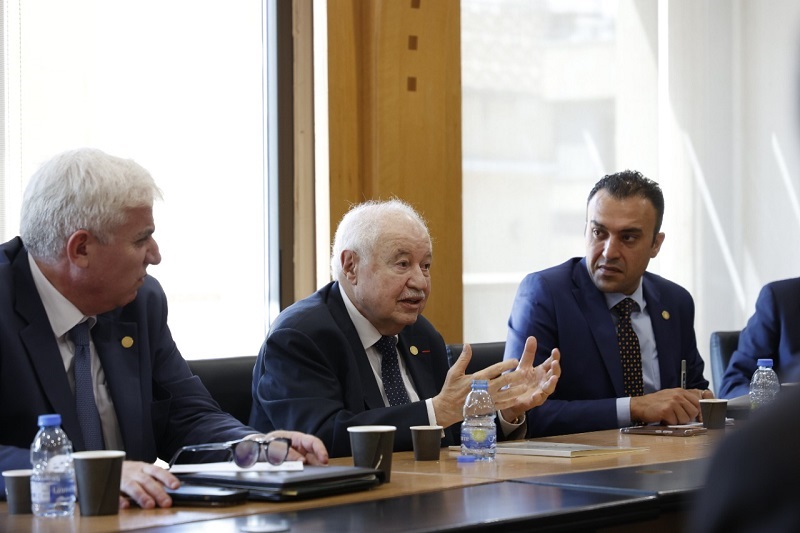In his meeting with the President of the Economic, Social and Environmental Council in Lebanon: Abu-Ghazaleh: Lebanon will never go bankrupt
15 Sep 2022BEIRUT - The President of the Economic, Social and Environmental Council (ESEC) in Lebanon, Mr. Charles Arbid, received HE Dr. Talal Abu-Ghazaleh, founder and chairman of Talal Abu-Ghazaleh Global (TAG.Global), with his accompanying delegation at the Council.
 The meeting was also attended by the MENA EdTech Alliance President, Dr. Rabie Baalbaki, the Vice-President of the Alliance for International Partnerships and Relations Coordinator, Ms. Nora Al-Murabi, the Vice President of the Council, Mr. Saad Eddin Hamidi Saqr, and the Council’s Director General, Mr. Mohammed Saifeddine; in addition to a host of the Council’s administrative board.
The meeting was also attended by the MENA EdTech Alliance President, Dr. Rabie Baalbaki, the Vice-President of the Alliance for International Partnerships and Relations Coordinator, Ms. Nora Al-Murabi, the Vice President of the Council, Mr. Saad Eddin Hamidi Saqr, and the Council’s Director General, Mr. Mohammed Saifeddine; in addition to a host of the Council’s administrative board.
During the meeting, Dr. Abu-Ghazaleh affirmed that the crisis in Lebanon is purely political, disagreeing with any claims that Lebanon could go bankrupt. He further made several proposals to save and revive the Lebanese economy, saying:
“Lebanon’s funds could have never evaporated, nor did the deposits. They have been moved from one hand to another, and transferred from one bank to another, and from one country to another”.
He strongly condemned the spreading feelings of hopelessness and frustration among the Lebanese people, explaining that only corporations declare bankruptcy, not countries. "A country would become broke only if it fails to serve its citizens,” Dr. abu Ghazaleh affirmed.
He called on the Council to serve as a platform for launching an intellectual campaign that restores the strength of the Lebanese state.
For his part, Mr. Arbid pointed out that the Council plays a significant role in providing a participatory dialogue platform for all political ideologies and parliamentary blocs, noting that the first achievement of the Council is in bringing representatives of all these political entities together. He also announced that the Council was the first to discuss the issue of ‘cash card aid’ to support vulnerable families.
“There are a number of positive external and regional indicators, such as the demarcation and the nuclear agreement; however, there are no positive indicators inside the country that encourage promoting feelings of hope among the Lebanese people,” Mr. Arbid said, calling on all political forces to end their political conflicts that are mainly responsible for eroding the Lebanese peoples’ confidence in their state.
Concerning Lebanon's banks crisis, Mr. Arbid said that the banking sector and the Association of Banks in Lebanon (ABL) have not issued any insight regarding the deposits of their customers. He emphasized the need to endorse the budget and the Capital Controls Law, as well as unifying the exchange rate to proceed in saving Lebanon from the economic, financial and living crises that the Lebanese citizens have been suffering from for around three years now.





